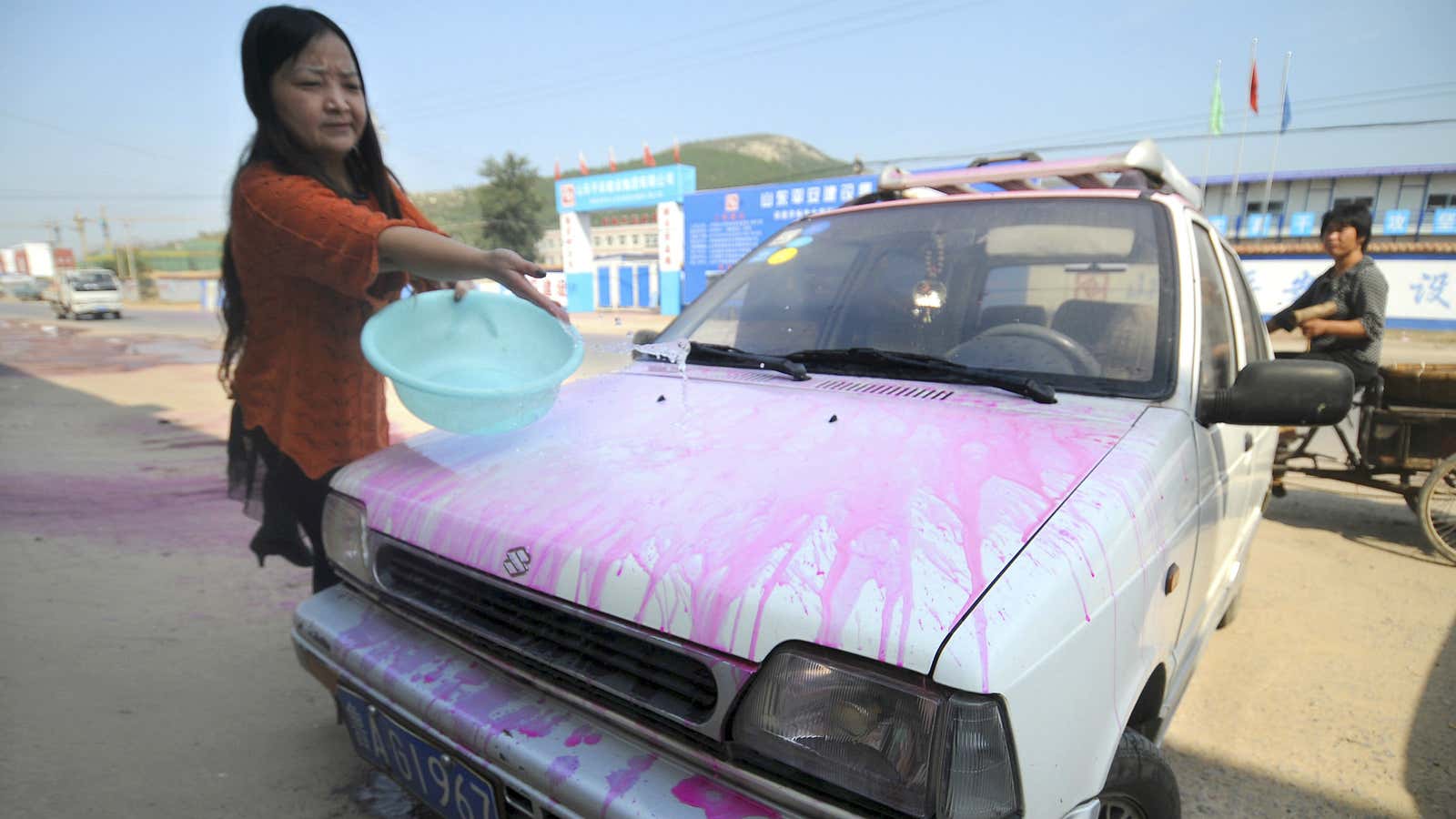First it was the peer-to-peer lending startups. Now another sector China’s once-hot startup scene is getting blasted with cold water.
Many startups that let consumers book car washes have folded, Chinese media has reported in recent weeks. Instead of going to a traditional brick and mortar car wash, car owners could use online booking or a mobile app to order cheap labor armed with sponges and soap, directly to their driveway.
Of nine car washing startups to emerge in China since 2014, only two remain in business (link in Chinese), SinaTech reports. One of them, known as Guagua Xiche, is still shilling suds in Beiing after raising US$60 million. The other, Diandian Yangche, has stopped washing cars and started selling insurance.
The most dramatic sign of turmoil in the industry, though, is a report this morning (Nov. 9) in The Beijing News that Li Dongpu, CEO and co-founder of car wash startup Wo Ai Xiche, has disappeared (link in Chinese). The company launched in early 2014 and raised $5 million in venture capital that December. But reckless spending coupled with staffing issues exhausted those funds by June. Li reportedly went missing last week, leaving 200 former and current employees with unpaid salaries amounting to 2 million yuan (about $300,000). He has closed company’s QQ group chat, stopped answering his phone, and employees have begun showing up at company’s premise’s with papers demanding compensation.
One reason for the industry’s quick flame out is likely an over-reliance on subsidies—something many goods-and-service delivery startups rely on, both in China and the US. SinaTech reports that many of China’s car-washing startups were offering washes for as little as 1 yuan (about 16 US cents), in order attract customers. Guagua, the lone survivor, offers washes for as low as 29 yuan (about $4.60), which the founder says still doesn’t cover the costs.
The market for on-demand car washing was weak in the US too, raising the question whether these companies should have been funded at all in either country. The highest-profile car wash startup in the US was Cherry, a San Francisco-based startup that raised $4.5 million before getting acquired by Uber rival Lyft in 2013. Lyft cancelled Cherry’s car wash services, and now only a few analogous car-washing companies exist in a handful of US cities.
Even more concerning, the quick death of China’s car washing could be a sign of what’s next for other startups that offer home delivery services in either country, from massages to car repair. Waves of funding for Chinese food delivery companies like Ele.me, which nabbed $615 million from the likes of Tencent, came months after US delivery startups Instacart and Postmates scored hundreds of millions of dollars.
While some of these companies have slightly different business models, they all share one trait—prices are artificially low. Unless a burst of mergers sparks consolidation, expect to see China’s car-washing startup implosion play out throughout the industry.




